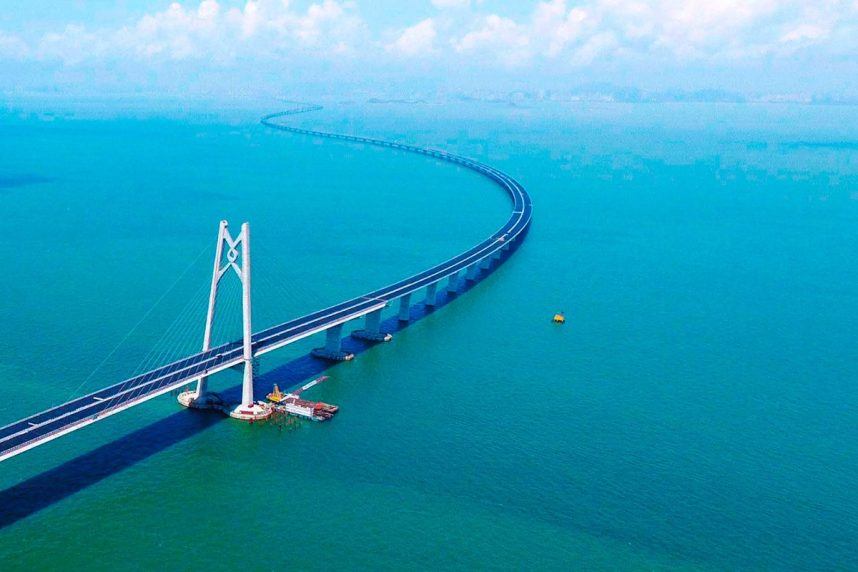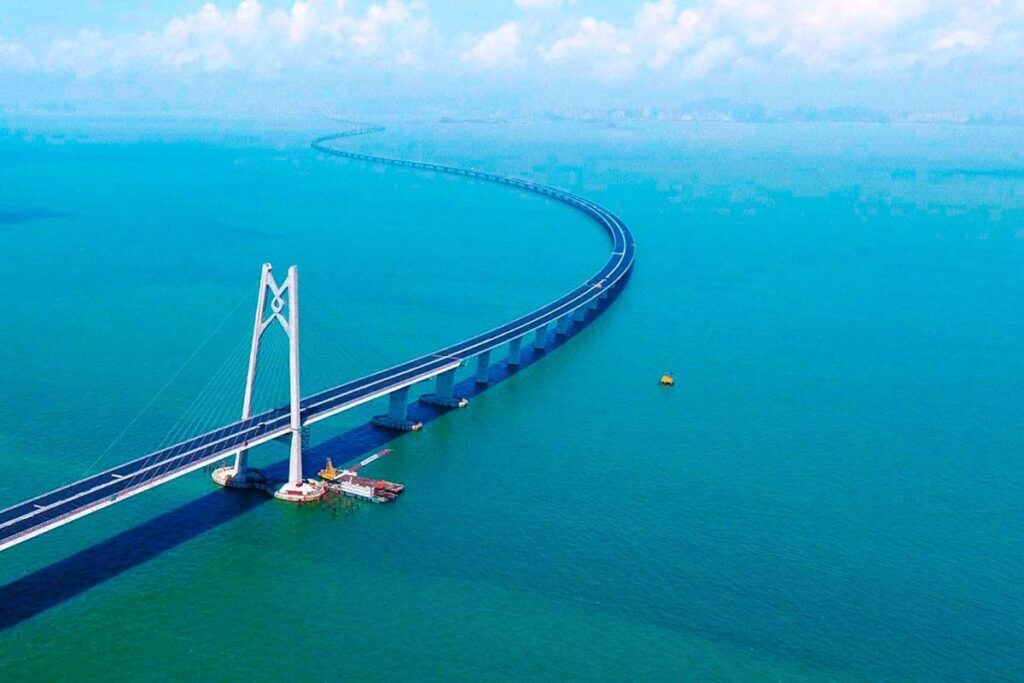Posted on: January 2, 2024, 05:22h.
Last updated on: January 2, 2024, 05:44h.
The Macau government is offering free bus rides to and from Hong Kong via the Hong Kong-Zhuhai-Macau Bridge for eligible travelers from Taiwan and certain international places of origin.

The Macau Government Tourism Office (MGTO) has launched a complimentary travel program between the two Chinese Special Administrative Regions (SARs) to spur additional visitation to the casino enclave. The MGTO says in a release that it has partnered with bus service operators to facilitate the travel across the 34-mile bridge-tunnel system, the longest sea crossing in the world.
The MGTO says people arriving in Hong Kong from Taiwan interested in the voucher program should visit the direct bus service counter at Hong Kong International Airport to obtain their complimentary passes. Tickets are available on a first-come, first-served basis, the MGTO detailed.
The Macau Government Tourism Office will launch the free ticket offer of the direct bus service from Hong Kong International Airport to Macau starting on Jan. 1, 2024, to encourage international and Taiwan region visitors in Hong Kong to extend their trip to Macau. The offer is set to spur twin-destination tourism to Hong Kong and Macao while tapping a more diverse range of international visitor markets,” an MGTO statement read.
The bridge, which opened in late 2018 after being built at a cost of nearly $19 billion, greatly expedites the vehicular travel time between the two SARs from about four hours to just 30 minutes. It also lessened demand for ferry shuttle service.
Visitors Return
2023 marked year one of Macau’s COVID-19 recovery.
The MGTO said on Monday that about 28.23 million visitors entered the region last year — a 395% year-over-year surge when 2022 remained under China President Xi Jinping’s “zero-COVID” program that kept normal life on hold. But 2023’s visitor haul represented only about 70% of the visitors who ventured into Macau in 2019.
Gross gaming revenue (GGR) totaled $22.7 billion, a 334% jump from 2022, but only about 63% of the $36.3 billion that the six casino operators won in 2019. While gaming win isn’t expected to recover to 2019 levels anytime soon — Macau clamped down on junket groups that had brought VIP players from the mainland — the resorts are betting big on visitor arrivals soon exceeding 2019 levels.
Macau is amid a diversification of its economy, which has heavily relied on its casinos. In exchange for granting the six gaming operators new 10-year concessions in late 2022, Macau mandated that they collectively invest $13.5 billion into their resorts through nongaming projects.
The 2022 licensing agreement came with a condition that the nongaming spend would increase by 20% if the casinos jointly won at least $22.3 billion in a given year through 2027. The government didn’t have to wait long for the potential $4.48 billion in additional nongaming investments to be activated, as the trigger was reached in 2023 — the first year of the new 10-year licenses.
Junkets Down to 18
In 2013, during the junket industry’s heyday in Macau, there were 235 licensed touring groups. GGR that year hit a record $45 billion. That’s when Xi ordered law enforcement to begin more closely monitoring their operations, which he believed posed a national security threat because of the large amounts of money outflowing from the mainland to the Macau tax haven.
The successful prosecution of Suncity Group founder Alvin Chau led to nearly all junkets closing shop and moving to more favorable markets like the Philippines and Vietnam.
Macau’s Gaming Inspection and Coordination Bureau in September said it would limit the number of junkets to 50 this year. But this week the government agency said there are just 18 remaining VIP groups in operation.



